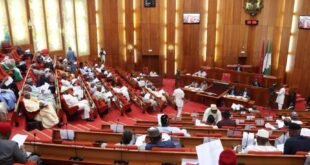Nigeria’s crude oil producers have opposed being forced to sell their products to the Dangote Refinery and other local refineries, saying it negates the framework of willing buyers and willing sellers.
Oil producers, under the auspices of the Independent Petroleum Producers Group (IPPG) have urged the Nigerian National Petroleum Company Limited to divert the volume of crude oil allocated to the Dangote refinery and other local refineries to alleviate the current shortage of crude oil supply experienced by local refineries which has affected the availability of local products in many parts of Nigeria.
According to a letter from IPPG Chairman Abdulrazak Isa dated August 16, 2024, and addressed to the Chief Executive of the Nigerian Upstream Petroleum Regulatory Commission, Gbenga Komolafe, the group opposed the forced sale to the Dangote Refinery and other local refineries, saying it could jeopardize existing commercial agreements, economic interests and business models in every segment of the oil and gas sector.
He expressed confidence that an amicable solution could be reached by all stakeholders.
He added that some of them had also received allocation letters from the NUPRC for certain volumes of crude oil supply to the domestic market for the second half of 2024, expressing concerns about the potential implications on the economy, especially foreign exchange earnings through royalties and taxes.
“While we fully support and applaud the efforts of Nigerian entrepreneurs to increase domestic oil refining capacity, it is important not to put undue pressure on private sector businesses to enter into arrangements that could effectively subsidize others in the oil and gas value chain under whatever guise.
“Under this willing buyer and willing seller framework, it is important for refiners to negotiate and execute long-term crude oil Sales and Purchase Agreements with producers and their marketing agents.
“These agreements should follow industry best practices, with typical terms ranging from one to five years,” the IPPG chairman said.
READ ALSO: NNPC denies sabotaging Dangote refinery
“The group further noted, “We understand that the current allocation methodology appears to be based on a matrix of producer production forecasts, permitted technical tariffs and domestic refinery crude oil requirements, rather than actual local consumption needs. This raises significant concerns as it suggests that allocations are being determined based on refinery demand, which may be in excess of what is needed for domestic consumption.”
“Such an approach could create inefficiencies and unfair disadvantages for producers.
“Therefore, oil refineries that have excess capacity exceeding domestic consumption should not exploit the Domestic Crude Oil Supply Obligation which could harm oil producers and other stakeholders, including the Government.”
He further suggested that the NNPC utilize its intervention crude oil volume allocation of 445,000 barrels per day to salvage the current situation as it has done in many cases in the past.
Isa said several IPPG members already own and/or supply crude oil to local refineries.
He stressed that NNPC is well positioned to mitigate the current crude oil supply shortage faced by local refiners by utilizing the statutory crude oil allocation to meet local domestic consumption.
“Historically, NNPC has always had intervention crude oil volumes (445,000 barrels per day) meant to meet the country’s domestic consumption. These volumes have always been used under various swap mechanisms to import refined products for domestic consumption.
“Since there is now domestic refining capacity to meet consumption, this specific volume should be reserved for all domestic refiners under a price hedging mechanism that can be provided by an appropriate financial institution such as Afrexim Bank,” he said.
However, Isa stressed that “Any national production above this allocated volume should be treated strictly as export volume, adhering to the willing buyer and willing seller framework in the international market, especially as refiners need to export excess product beyond domestic demand, thereby increasing foreign exchange earnings.”
Oil producers defy government order forcing them to sell to Dangote Refinery first appeared on Latest Nigeria News | Headlines from Ripples Nigeria.
 JamzNG Latest News, Gist, Entertainment in Nigeria
JamzNG Latest News, Gist, Entertainment in Nigeria









